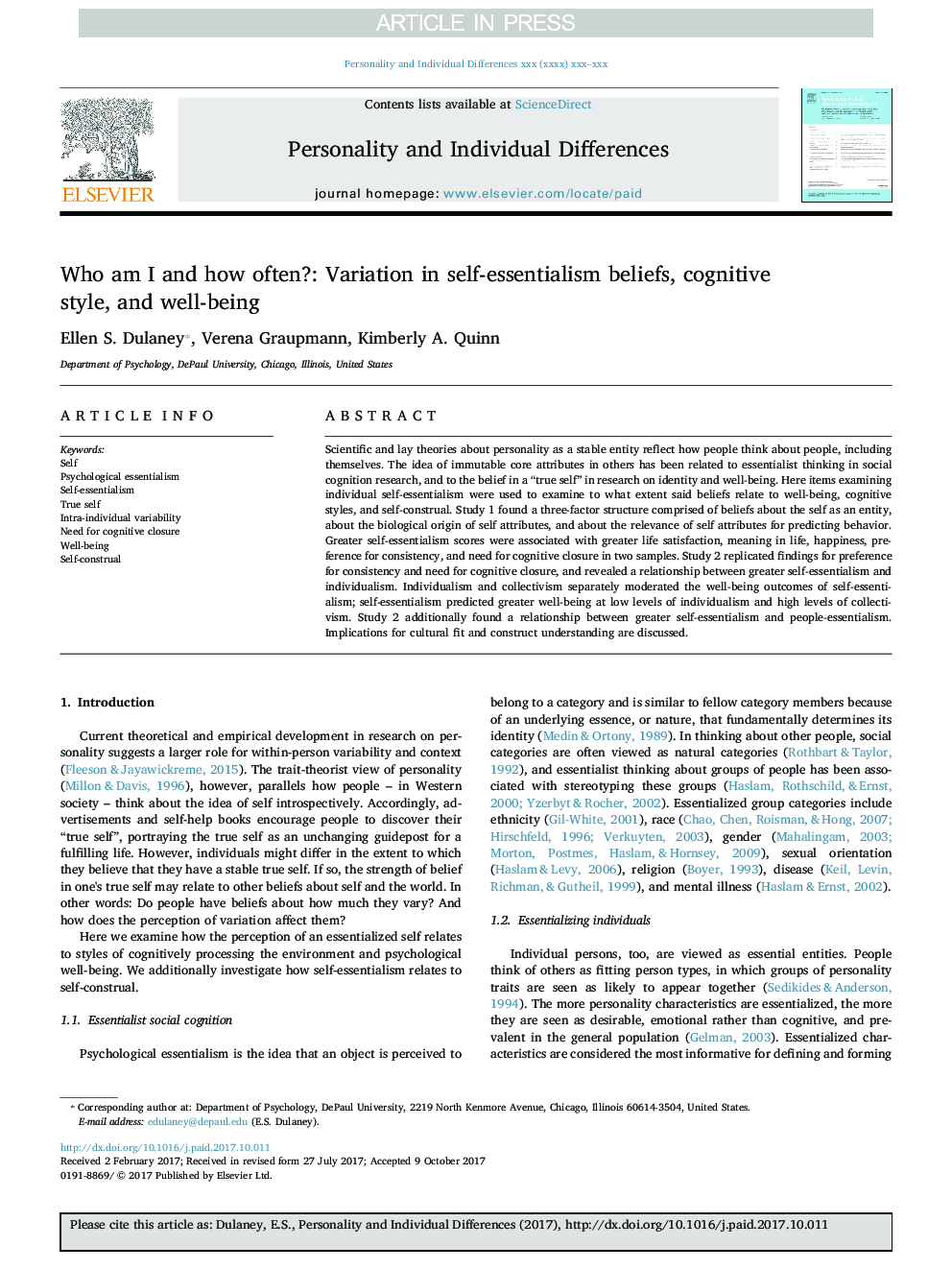| کد مقاله | کد نشریه | سال انتشار | مقاله انگلیسی | نسخه تمام متن |
|---|---|---|---|---|
| 11016193 | 1778131 | 2019 | 12 صفحه PDF | دانلود رایگان |
عنوان انگلیسی مقاله ISI
Who am I and how often?: Variation in self-essentialism beliefs, cognitive style, and well-being
ترجمه فارسی عنوان
چه کسی هستم و چه زمانی ؟: تنوع در اعتقادات خودبازیگرایی، سبک شناختی و رفاه
دانلود مقاله + سفارش ترجمه
دانلود مقاله ISI انگلیسی
رایگان برای ایرانیان
کلمات کلیدی
موضوعات مرتبط
علوم زیستی و بیوفناوری
علم عصب شناسی
علوم اعصاب رفتاری
چکیده انگلیسی
Scientific and lay theories about personality as a stable entity reflect how people think about people, including themselves. The idea of immutable core attributes in others has been related to essentialist thinking in social cognition research, and to the belief in a “true self” in research on identity and well-being. Here items examining individual self-essentialism were used to examine to what extent said beliefs relate to well-being, cognitive styles, and self-construal. Study 1 found a three-factor structure comprised of beliefs about the self as an entity, about the biological origin of self attributes, and about the relevance of self attributes for predicting behavior. Greater self-essentialism scores were associated with greater life satisfaction, meaning in life, happiness, preference for consistency, and need for cognitive closure in two samples. Study 2 replicated findings for preference for consistency and need for cognitive closure, and revealed a relationship between greater self-essentialism and individualism. Individualism and collectivism separately moderated the well-being outcomes of self-essentialism; self-essentialism predicted greater well-being at low levels of individualism and high levels of collectivism. Study 2 additionally found a relationship between greater self-essentialism and people-essentialism. Implications for cultural fit and construct understanding are discussed.
ناشر
Database: Elsevier - ScienceDirect (ساینس دایرکت)
Journal: Personality and Individual Differences - Volume 136, 1 January 2019, Pages 148-159
Journal: Personality and Individual Differences - Volume 136, 1 January 2019, Pages 148-159
نویسندگان
Ellen S. Dulaney, Verena Graupmann, Kimberly A. Quinn,
